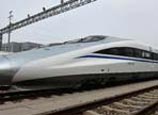
China would "welcome" the creation of a free trade agreement with the European Union, its largest trading partner, but it could "take time" to be established, Premier Li Keqiang said on Friday.
As the two sides remain entangled in escalating trade frictions, led by the EU's probe into and punitive tariffs on China's solar panel goods, the premier called on both parties to consider establishing a regional trade arrangement.
"If China and the EU could set up a regional FTA, the impact on both sides and worldwide would be far-reaching and profound," said Li, during a meeting with delegates at the Third Global Think Tank Summit in Beijing.
But as China and the EU remain at different stages of their development, it could take a while for them to put such a FTA in place," said Li.
"We need both patience and willingness," he added.
His comments came as China and the EU remain at loggerheads over a raft of disputes covering a wide range of goods, from solar panels and telecom equipment, to wine and steel pipes.
Earlier this month, the European Commission, the EU's executive arm, imposed an average tariff of 11.8 percent on solar panel imported from China, and the tariff will rise to more than 47 percent in August if negotiations fail to resolve the dispute.
Li has consistently maintained that such investigations cannot benefit the EU, while at the same time they brought harm to China.
The EU is China's largest trading partner, and a major source of foreign direct investment into China.
China's outbound direct investment in the EU, particularly in recent years as the continent suffered ongoing debt problems, has also risen sharply.
In early March, Wu Hailong, China's ambassador to the EU, told China Daily that China had submitted a proposal on launching a feasibility study into the creation of a free trade agreement with the EU.
The two sides are expected to officially launch talks over a bilateral investment treaty later this year, Wu said.
Feng Zhongping, vice-president of the China Institutes of Contemporary International Relations, said he thinks the creation of a two-way investment treaty could pave the way for an FTA.
He Maochun, director of the Economy and Diplomacy Research Center at Tsinghua University in Beijing, added: "Undoubtedly, the prospects for a China-EU FTA are very promising, given the sound bilateral economic relations."
However, He cautioned that some major hurdles still exist in finalizing the plans.
"The two economies are so different from each other, and they compete fiercely in many sectors," He added.
As the Doha round of talks remain deadlocked, countries have been pursuing new market openings through bilateral and regional trade pacts.
The United States recently announced the launch of Transatlantic Trade and Investment Partnership talks with the EU, with the first round of negotiations due to start early next month.
Negotiations are also ongoing for the farther development of the Trans-Pacific Partnership, led by the US, which involves 12 countries, with Japan the newest member.
Against such a backdrop, experts are encouraging China to accelerate its FTA strategy, especially with the EU.
















 Mom makes target weight to donate kidney to son
Mom makes target weight to donate kidney to son


![]()
